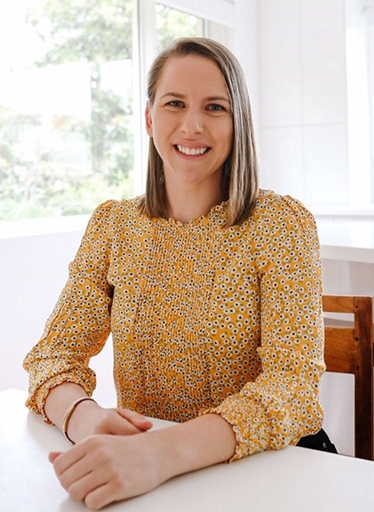
“I love the human brain. Even when I was in Year 6, I used to always watch ‘Big Brother’ because I was fascinated by human behaviour.“
So Maddy, what’s it like to work as a speech pathologist at the Department for Education, Children and Young People?
It’s amazing. I absolutely love my job. My main role as a speech pathologist is to help students access the school curriculum to the best of their ability. One day I can be doing one-on-one work with students who have severe speech and sound challenges. On another day, I can be doing class work at a school that aims to improve language and literacy skills.
How many schools do you work at?
I work at four different schools, which is one of the things I love. There’s lots of flexibility. Once a fortnight I go to Tasman District School at Nubeena on a Monday. Tuesdays I go to Montagu Bay. Every Wednesday I’m at Southern Support and Thursdays and Fridays I’m working at East Derwent.
Can you tell us more about the work you do?
So it depends on the school. For example at one school, the work I do – the student might have an intellectual disability. We assess whether they need meal management support, or what type of Augmentative and Alternative Communication (AAC) device they may need. At another school the work is different. Some students might have a speech/sound delay, a stutter or they might be having difficulty with their language skills. So I would conduct an assessment suited to the area of concern and provide appropriate intervention. Some students might also have a developmental language disorder which only a speech pathologist can diagnose.
Do you work closely with teachers at the school?
Absolutely. It’s not until you do all the different types of assessment that you can identify the level of difficulty the student is having.
What’s the most rewarding part of the job?
It’s when I can see change. Sometimes progress can be slow, but when a student can start to say some sounds you’ve been working on for so long, that’s amazing. Or when I can see progress with their reading, and their understanding and comprehension of language. Or even when I can see a student’s self-confidence increase, I find that really rewarding. Any sort of change, even if it’s really small, that’s exciting for me.
What are some of the challenges of your job?
So a big part of our job is doing the assessment and providing an answer. Also, time management can be tricky.
What qualifications do you need to become a speech pathologist?
You need a Bachelor Degree in Speech Language Pathology or a Masters in Speech Language Pathology.
Were you academic at school?
No, not really, I found learning hard, especially reading and spelling. I can remember trying to learn the alphabet and just crying. But I was really conscientious.
Were you interested in a career in speech pathology from a young age?
I hadn’t even heard of speech pathology until after I left school – it wasn’t until I was in Canada that I’d heard about it.
What ideas did you have about a career back in high school?
I always wanted to help people, so that’s why I decided to do a Bachelor of Arts and majored in Psychology with a minor in Aboriginal Studies. I love the human brain. Even when I was in Year 6, I used to always watch ‘Big Brother’ because I was fascinated by human behaviour.
Do you remember your first job?
I was a waitress at Sandy Bay wood-fired pizza. I started when I was 16, and I was there for four years. I’ve also had a go at cleaning. Back then I was working to get money to support myself through university, and to pay for my travels.
When did you decide you wanted to become a speech pathologist?
I remember it clearly. It was 2010, and I was doing an exchange in Canada. I met a girl called Jessica, and she was studying linguistics. We were just talking a lot about the impact it can have on people’s lives. I was really fascinated and that set off something in my head. Rather than psychology and counselling, I wanted to do speech pathology because it links in with counselling, and families, adults and children – and just how it can help improve the quality of life through better communication.
Speech pathology seems to be a popular career path for women.
That’s true. When I was studying there were 52 women and just 3 men in my cohort – and only one of the men graduated. I’m not sure why it attracts so many women. You don’t have to be maternal because you’re working across all ages. But hopefully that’ll change because it’d be great to work with some more men, just because you might get a different perspective about something.
Is there a shortage of speech pathologists in Tasmania?
Absolutely. In fact, it feels like there’s a shortage across Australia at the moment.
So with the skills, qualifications and experience you have, if you wanted to move into anther area, is that possible?
Sure. I could go into private practise at a clinic, or I could go and work at a hospital.
What do you say to someone at school who doesn’t have a clue what they want to do when they finish school?
Think about what sparks joy, what makes you feel good. You’re going to be working for a long time – so find something that gets you excited.
